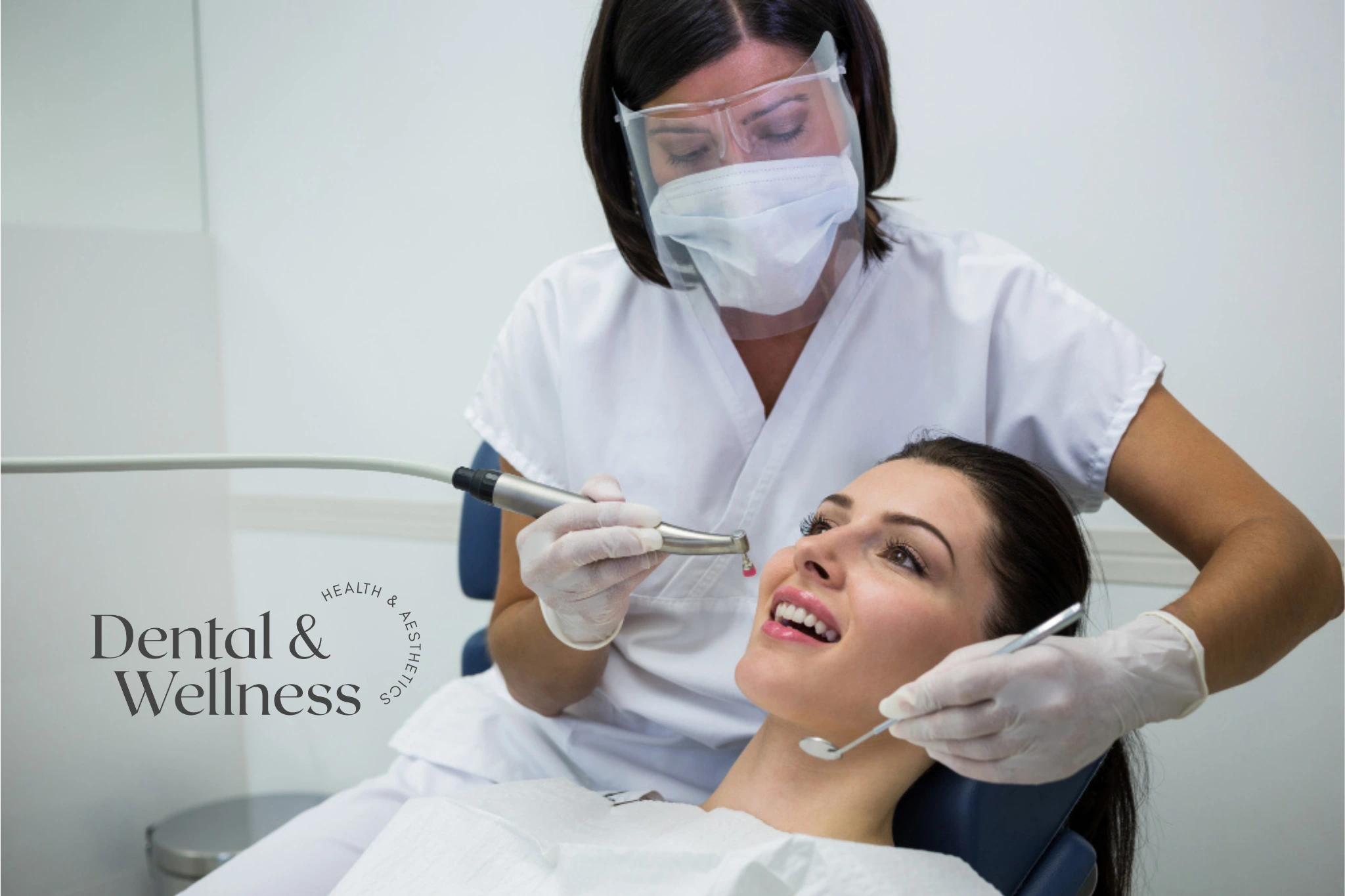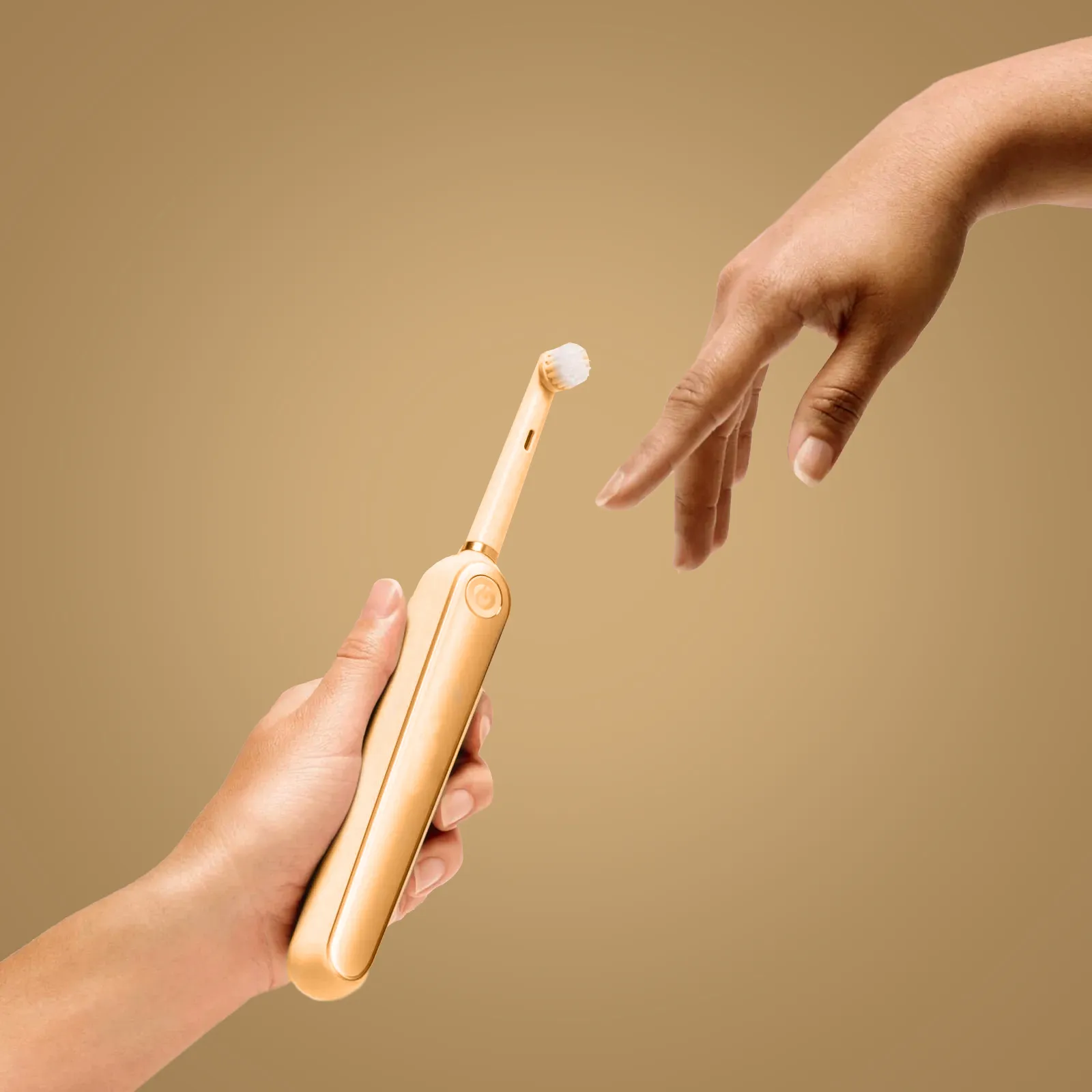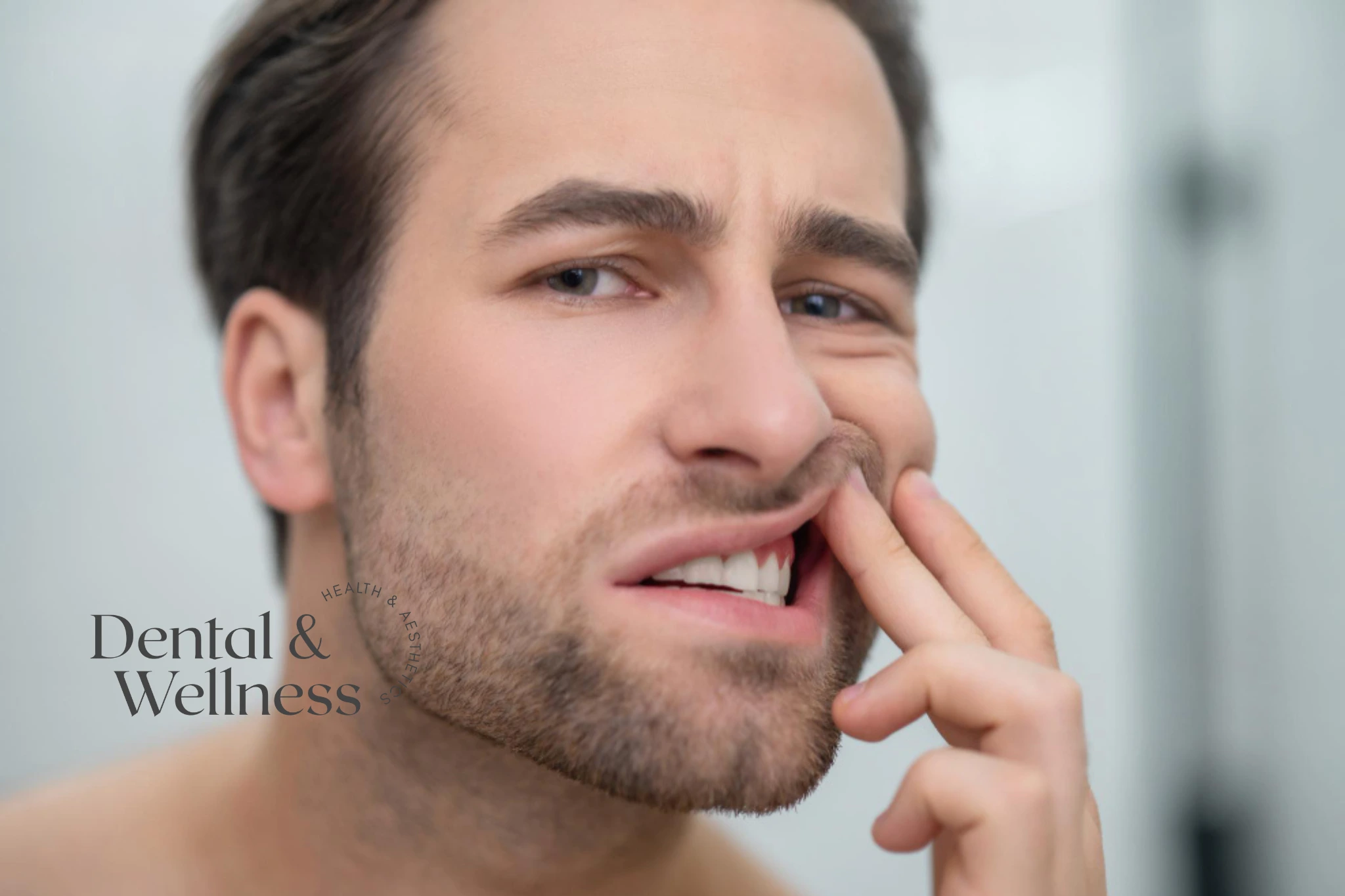TL;DR
- Bleeding gums occur when the gums around the teeth become irritated and bleed due to swelling or injury.
- This can happen due to many reasons. Some common ones:
- Not cleaning teeth thoroughly, which allows bacteria and plaque to accumulate and irritate the gums.
- Brushing too hard or using a toothbrush that is too rough can also hurt gums and cause bleeding.
- Gum diseases (gingivitis and periodontitis) can cause the gums to bleed.
- Other causes include
- Poorly fitting dentures
- Hormone changes
- Some medicines
- Health problems like diabetes or blood disorders
- To manage bleeding, brush your teeth gently twice daily with a soft brush, floss daily, and visit a dentist regularly.
- Home remedies, such as rinsing with salt water and eating foods rich in vitamins, can help gums heal.
- If bleeding lasts more than a week or presents with severe symptoms, it is essential to consult a dentist to assess for more serious issues and receive the appropriate treatment.
Bleeding Gums: Understanding One of The Most Common Oral Health Issues
Bleeding gums are a surprisingly common issue in the UK, affecting around 34% of adults at some point, who often only notice how bad things have gotten when brushing or flossing. This distinct but uncomfortable symptom can stem from a variety of causes that ultimately boil down to either pre-existing health conditions or lapses in daily oral hygiene.
Understanding how to stop bleeding gums through a dedicated care routine, including a proper diet and regular dental visits, is key to maintaining healthy teeth and gums. In this article, we’ll explore the main causes of bleeding gums and share achievable steps to keep your gums strong for the long term.
Causes of Bleeding Gums
Bleeding gums occur when the soft tissue around your teeth becomes irritated or injured and starts to bleed. This often happens because the gums are swollen or damaged, usually due to plaque buildup, a sticky film of bacteria. When plaque collects on your teeth, it can make your gums red, tender, and prone to bleeding, especially when brushing or flossing. Bleeding is the body’s way of signalling that your oral hygiene needs attention.
Here are some of the most common causes of gum bleeding:
- Poor hygiene habits: Plaque builds up without proper care, irritating your gums.
- Poor brushing technique: Applying too much pressure or using a hard-bristled brush.
- Gum disease (gingivitis): This is a primary stage of gum infection caused by plaque. It causes your gums to swell, become red, and bleed easily.
- Hormonal changes: Changes during pregnancy, puberty, or menopause.
- Certain medicines: Medications like blood thinners can cause increased bleeding.
- Vitamin deficiency: Low reserves of Vitamin C or K in particular.
- Medical conditions: Chronic conditions, such as diabetes.
Why You Shouldn’t Ignore Bleeding Gums?
Bleeding gums may seem harmless, but ignoring the signs can have serious effects over time. At Dental & Wellness, London, we’ve seen many patients who’ve come in with severe dental complications because they ignored warning signs such as bleeding.
Here’s what may happen if you ignore bleeding:
- Gum recession: Continuous inflammation can cause the gums to retreat from the teeth, exposing the roots.
- Bad breath: Bacteria from infected gums often cause persistent bad breath.
- Tooth loss: Gum disease weakens the structure that holds teeth in place, increasing the risk of losing them.
- Bone damage: Advanced gum disease can harm the jawbone that supports your teeth.
- Overall health problems: Studies show that gum infections are connected to the incidence of heart disease, diabetes, and respiratory problems.
If you’ve noticed sporadic periods of bleeding in the past, this is your sign to modify your routine and learn how to stop bleeding gums.
How To Prevent Bleeding in Your Gums?
Depending on how severe the bleeding is, there are many simple but effective steps you can take to heal your gums and stop the bleeding naturally, including:
Maintain Good Oral Hygiene
Clean your teeth twice a day with a soft-bristle toothbrush. Gentle circular motions clean plaque without hurting your gums. We recommend you floss once a day to remove food particles between teeth.
Use an Antibacterial Mouthwash
Rinsing with an alcohol-free antibacterial mouthwash helps kill bacteria that cause gum inflammation. This reduces gum bleeding and supports faster healing.
Improve Your Diet
Eat foods with high levels of Vitamin C (like oranges, strawberries, and kiwi) and Vitamin K (found in spinach and kale). These vitamins help strengthen gum tissues and prevent further bleeding.

Massage Your Gums
Gently massaging your gums for a few minutes daily boosts blood flow and encourages healing. You can use a clean finger or a gum massager for this purpose.
Choose the Right Toothpaste
Use toothpaste designed for gum health. Many contain natural ingredients such as aloe vera or tea tree oil that reduce inflammation and bacterial growth.
Stop Smoking
Smoking restricts blood flow, making healing slower and increasing the risk of gum disease. Taking the steps to quit the habit can support long-term health.
Stay Hydrated
Drinking water at timely intervals helps rinse away food particles and bacteria, while maintaining proper moisture supports healthy gums.
How to Stop Bleeding Gums Immediately?
Of course, prevention and the associated lifestyle modification can be a long-drawn and ongoing process. Here’s how to stop gum bleeding immediately, should you notice it:
- Swish with saltwater: Dissolve a teaspoon of salt in warm water and rinse out your mouth for 30 seconds to reduce swelling and kill bacteria.
- Apply a cold compress: Use ice wrapped in a clean cloth and press gently on the cheek near the bleeding area to stop blood flow and reduce swelling.
- Use a hydrogen peroxide rinse: A diluted hydrogen peroxide rinse can disinfect the mouth and promote healing. Make sure not to swallow it.
- Avoid spicy and tough foods: Until the gums heal, eat soft foods to avoid irritation.
If gum bleeding continues even after trying these remedies, it's time to schedule a dental appointment.
Professional Treatments for Bleeding Gums
If your gums keep bleeding for more than a week or you notice swelling, pain, or bad breath, it is best to visit a dentist. Persistent gum bleeding can indicate early gum disease. A professional examination can confirm whether the problem is simple irritation or something more serious requiring treatment. Here’s what is commonly recommended:
- Dental cleaning: A deep cleaning removes plaque and tartar buildup from below the gum line
- Scaling and root planing: This process smoothens the tooth roots to help the gums re-adhere and heal properly
- Antibiotic therapy: If an infection is detected, your dentist may prescribe antibiotics to control bacteria
- Laser gum treatment: In advanced cases, laser therapy can remove diseased tissue and prompt new gum growth

Takeaway
Knowing how to stop bleeding gums is essential for maintaining overall oral health. Gentle cleaning and a healthy diet can help prevent and manage gum bleeding. If the bleeding persists, it’s important to visit a dentist for professional evaluation and care.
Dental & Wellness, London is a trusted dental clinic in Islington, dedicated to empowering our surrounding community to take charge of their oral health. If your gums begin paining or bleeding uncontrollably, our emergency dentists can provide fast, patient-focused treatment with immediate relief.
Visit us today at 222 Essex Road, London N1 3AP, to keep your gums strong and maintain a healthy smile.
To book your appointment, please call us at 020 8127 4567 or email reception@dentalwellnesslondon.co.uk.
FAQs
What does gum disease look like?
Gum disease is characterised by red and tender gums that tend to bleed when brushing or flossing. In some cases, the gums may recede from the teeth, leading to bad breath and loose teeth.
What deficiency causes bleeding gums?
Bleeding gums can result from deficiencies in Vitamin C and Vitamin K. Vitamin C is essential for maintaining strong and healthy gums, while Vitamin K plays a critical role in blood clotting. When levels of these vitamins are low, the gums may bleed more easily.
Can gum disease kill you?
Gum disease can increase the risk of serious, potentially life-threatening health problems, especially when it affects the heart or other vital organs.
Is gum disease curable?
Gum disease is about management and unfortunately cannot be cured in most cases. However, early gum disease (gingivitis) can be reversed with good dental care.













